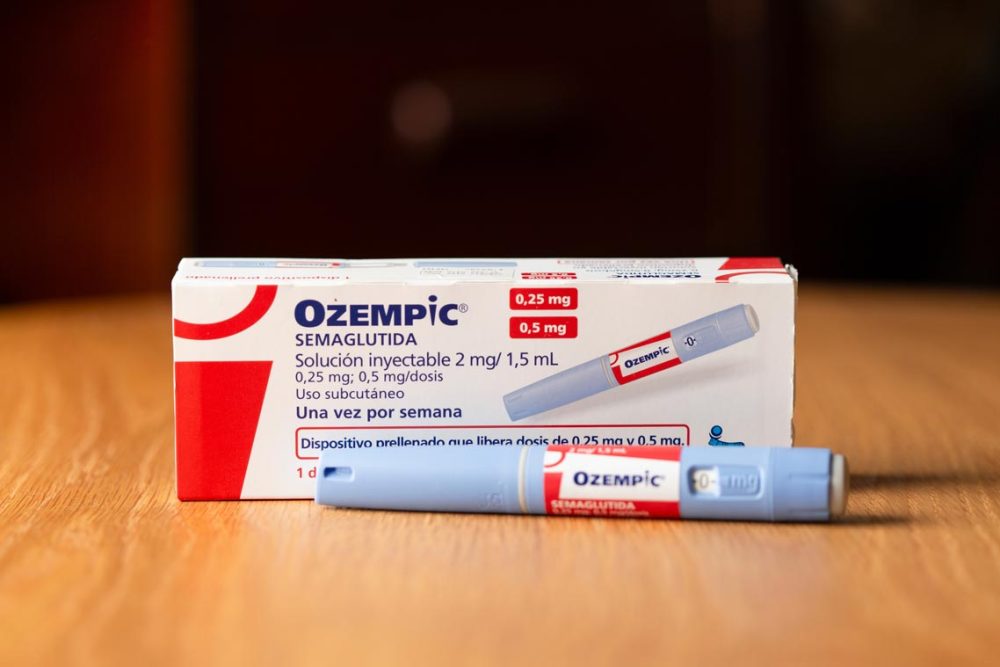Advertisment
Semaglutide significantly reduces risk of major kidney disease events, cardiovascular outcomes and mortality in patients with type 2 diabetes and chronic kidney disease

Semaglutide significantly reduces risk of major kidney disease events, cardiovascular outcomes and mortality in patients with type 2 diabetes and chronic kidney disease, groundbreaking study reveals
A pioneering study has demonstrated that semaglutide significantly reduces the risk of major kidney disease events, cardiovascular outcomes, and all-cause mortality in patients with type 2 diabetes and chronic kidney disease.1 The landmark trial, presented today at the 61st ERA Congress, will pave the way for new treatment strategies and offer hope to millions of patients globally.
The FLOW (Evaluate Renal Function with Semaglutide Once Weekly) study is a double-blind, randomised, placebo-controlled international trial comprising 3,533 patients, with a median follow-up period of 3.4 years. The trial was designed to assess the efficacy and safety of semaglutide, a once-weekly subcutaneous glucagon-like peptide 1 (GLP-1) receptor agonist, in preventing major kidney outcomes, specifically kidney failure, substantial loss of kidney function, and death from kidney or cardiovascular causes, in individuals with type 2 diabetes and chronic kidney disease. Patients either received semaglutide 1.0 mg once weekly or placebo.
Participants who received semaglutide had a 24% risk reduction for the composite primary endpoint, including kidney outcomes and death due to cardiovascular and kidney causes, compared to those who received placebo. This reduction risk was consistent across both kidney-specific and cardiovascular death outcomes.
Secondary endpoints also showed significant improvements with semaglutide. Specifically, the total eGFR slope was 1.16 ml/min/1.73m2/year slower, the risk of major cardiovascular events was decreased by 18%, and the risk of all-cause mortality was reduced by 20%.
This evidence of efficacy, combined with fewer serious adverse events in the semaglutide group, offers hope to millions of patients globally who face the daunting prospect of chronic kidney disease and type 2 diabetes, and their related complications.
Professor Vlado Perkovic, who presented the results for the first time today at the 61st ERA Congress, emphasised the importance of these results, “The use of semaglutide in people with type 2 diabetes and chronic kidney disease can lower the risk of major kidney outcomes and reduce the risk of cardiovascular events, cardiovascular death and all-cause death. These benefits signify a profound clinical impact saving kidneys, hearts and lives, for patients with type 2 diabetes and chronic kidney disease. Additionally, the reassuring safety findings further support the strong potential value of semaglutide in this population.”
Chronic kidney disease affects over 800 million people worldwide and is particularly prevalent among individuals with type 2 diabetes.2 Chronic kidney disease poses a significant risk of kidney failure, cardiovascular events and death,3 highlighting the critical need for research into its prevention and treatment. While current therapies have demonstrated kidney protection and reduced cardiovascular risks, many individuals continue to experience declining kidney function and adverse outcomes. This has sparked a growing interest in exploring new treatments, including GLP-1 receptor agonists.1
Professor Vlado Perkovic further states, “These findings offer great promise in reshaping treatment strategies for individuals at high risk of diabetes-related complications, offering a new avenue for kidney and cardiovascular protection.”
The FLOW trial was overseen by an academic-led Steering Committee, in partnership with the study sponsor, Novo Nordisk, which also managed trial operations. The study is being published today in the New England Journal of Medicine and presented at the 61st ERA Congress in Stockholm, Sweden.
About the European Renal Association (ERA):
With more than 25,000 active members, the ERA is one of the biggest nephrology associations worldwide leading European nephrology, and one of the most important European Medical Associations. It organises annual congresses and other educational and scientific activities. The ERA also collects data and performs epidemiological studies through its Registry. The Society supports fellowships and educational/research projects through its committees and working groups. Its publications are NDT, CKJ (Open Access journal), and the online educational portal NEP.
The 61st ERA Congress takes place between 23-26 May 2024, both virtually and live in Stockholm, Sweden.
Website: www.era-online.org
References:
- Effects of Semaglutide on Chronic Kidney Disease in Type 2 Diabetes, Perkovic V. et al. (2024). Presented at the ERA Congress 2024.
- Kovesdy C. P. (2022). Epidemiology of chronic kidney disease: an update 2022. Kidney international supplements, 12(1), 7–11. https://doi.org/10.1016/j.kisu.2021.11.003
- Mann, J. F. E., Buse, J. B., Idorn, T., Leiter, L. A., Pratley, R. E., Rasmussen, S., Vilsbøll, T., Wolthers, B., & Perkovic, V. (2021). Potential kidney protection with liraglutide and semaglutide: Exploratory mediation analysis. Diabetes, obesity & metabolism, 23(9), 2058–2066. https://doi.org/10.1111/dom.14443
- Rossing P et al. The rationale, design and baseline data of FLOW, a kidney outcomes trial with once-weekly semaglutide in people with type 2 diabetes and chronic kidney disease. Nephrol Dial Transplant. 2023 Aug 31;38(9):2041-2051. doi: 10.1093/ndt/gfad009. Erratum in: Nephrol Dial Transplant. 2024 Mar 27;39(4):724. PMID: 36651820; PMCID: PMC10469096.





